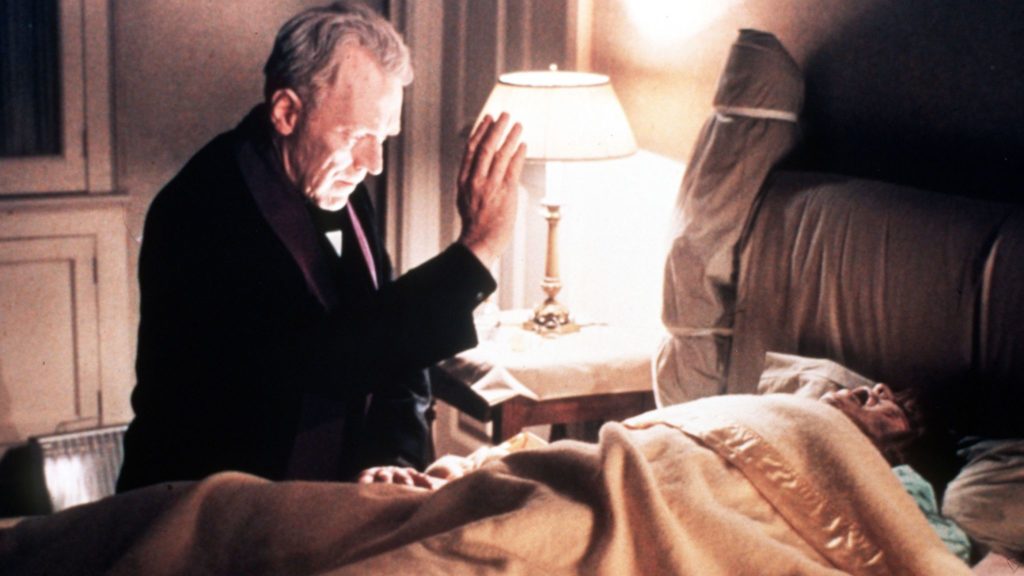Max von Sydow: Jesus, Knight, Priest, Assassin, Emperor
By • March 9, 2020 0 1550

Death rarely takes a holiday, except in plays and movies, which is fitting. When an actor dies, he or she keeps Death very busy indeed.
If, as Shakespeare wrote (and he should have known), “one man in his time plays many parts,” then the passing of Swedish actor Max von Sydow on March 8, at the age of 90, meant that many memorable characters and roles went with him — and in a sense were resurrected — over 100 in all. This takes into account the idea that actors are the sum of their parts, if not to them, at least to us.
So, to begin with, Jesus died, at least the version that von Sydow played in the production mounted by legendary Hollywood director George Stevens, father of Georgetown resident George Stevens Jr.
So did the priest Father Lankester Merrin, who came to perform an exorcism at a prominent Georgetown residence in William Friedkin’s 1973 film “The Exorcist,” in which Linda Blair, Jason Miller and Ellen Burstyn also appeared.
Von Sydow, who performed in many prestigious (and some not so prestigious) Hollywood films, was nonetheless thoroughly European, of the Nordic type, and his principal and most acclaimed association was with Swedish director Ingmar Bergman in a series of artful, unforgettable and notable films. Several are considered classics — timeless, in a way that perhaps even Death might not overcome.
In fact, Death had a hard time with the knight Antonius Block, who played a game of chess for his life with Death in Bergman’s 1957 masterpiece, “The Seventh Seal,” set during the days of the Black Death. This black-and-white cinematic treasure was an evocative, contemplative, almost cerebral match with Bergman’s “The Virgin Spring” of 1960, also in a raw and violent medieval setting, in which a man named Töre avenged the rape of his daughter.
The voice always haunted. Von Sydow’s acting with Liv Ullmann in films such as Bergman’s “Shame” of 1968 presented the idea of what stillness was amid emotional noise.
In almost every role — even as a master villain, a contract killer, a spy — there was a quietude about von Sydow. His hair was often cut short, the bones and facial features were sharp and the style was icy and strong. This made him a perfect man to play emigrants, in Jan Troell’s “The Emigrants” (also with Ullmann) and later in Bille August’s “Pelle the Conqueror,” portrayals that required him to make courage and perseverance visible.
One suspects that von Sydow was something of a shadow, at least in many of his cinematic guises, like the killer in “Three Days of the Condor.” Except, if one remembers his Jesus, that voice registered across Galilee and beyond borders with compassion, setting hearts and mind in motion.
But, then again, there’s von Sydow in “The Simpsons,” as Ming the Merciless in “Flash Gordon” and in “Rush Hour 3” — Max meets Jackie Chan — which would indicate that he was not only a Bergmanesque phantom of the human psyche but a fully-rounded and relatable human being, with an appreciation of fame and money, and a sense of humor.
Thanks to these roles, and appearances in blockbuster series like “Star Wars” and “Game of Thrones,” in which he played a character called the Three-Eyed Raven, his reputation and memory will endure in the popular mind.
He settled into age well. This fan of Robin Hoods of any kind still remembers his last stand in the Russell Crowe version of 2010.
The death of a much-admired actor is always this way, with all of his or her roles fondly recalled and brought again to life.

